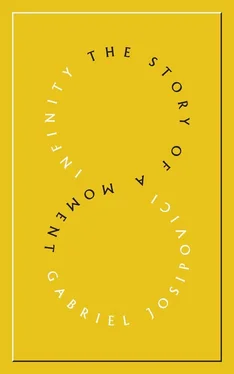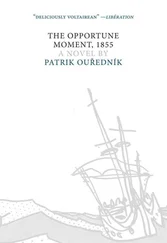— Did he speak to you about his visit to India and Nepal?
— He said: I only spent five months in India and Nepal. I went with the expedition of the great Buddhologist Giuseppe Tucci, he said, and they were the most important few months of my life. I was interested in transcendence then, he said. There are many roads to transcendence, he said. There is the way of Indian mysticism, the way of Chinese mysticism, the way of Nepalese and Tibetan Buddhism, the way of Sufism, the way of Zen, the way of the Desert Fathers, the way of the Irish monks, the way of St John of the Cross, and of course there is the way of art. That is a very great way, Massimo, he said. Une grande voie. Une très grande voie . When he was excited Mr Pavone would lapse into French, one reason I believe why he liked talking to me was because of the time I had spent in France and my ability to understand the language. Une très très grande voie , Massimo, he said. And music is the most direct of all the ways of art, he said. It goes directly to the heart and directly to the body. Music became too conscious at the beginning of the twentieth century, he said, it was necessary to return it to its roots in the unconscious. Some people call this inspiration, a grand name for a simple thing. The root of the word inspiration is breath, he said, and all music is made of breath. If I have given anything to music, he said, it is that I have given music back its awareness of the importance of breathing, of breath. Ruach , it is called in Hebrew, and with this ruach God created the world and with this ruach God created Adam, and it is this ruach that makes us live and also makes us spiritual beings.
He stopped. I waited for him to go on, but when it became clear that he was not going to, I said: Go on.
— I can’t remember, he said.
— What can’t you remember?
— Anything.
— Anything?
— What else he said about this.
— It doesn’t matter. Talk about something else.
— Yes, sir, he said.
I waited.
Finally I said: Well?
— What would you like me to talk about, sir? he asked.
— What did he feel about living here in Rome?
— He said to me one day: Massimo, this is Rome. Rome is the boundary between East and West. South of Rome the East starts, and north of Rome is where the West starts. This borderline runs exactly over the Forum Romanum. This is where my house is, and this explains my life and my music.
— So he felt himself to be a Roman?
— He said to me: Massimo, I am a Sicilian, which means I am a stranger everywhere on earth. Sicily has rejected me, he said, and nowhere else has welcomed me as Dante, when he was exiled by his native city of Florence, was welcomed by Can Grande della Scala, the ruler of Ravenna. Fortunately, he said, I have always had enough money to live wherever I wanted. I lived in Monte Carlo when I was young and I was a popular figure at the balls and in the casinos and bridge clubs of the Côte d’Azur. I lived in London after that and was a frequent visitor at the Court of St James. I lived in Vienna when I was studying with Scheler and frequented all the café-houses of the city. I lived in Switzerland during the war and got to know the sanatoria of that country better than anyone else, and the neurasthenics and madmen and lung cases who inhabited them. I lived in Paris after that and got to know the artists who at that time crawled all over the city. I was equally friendly with the tramps who slept by the Seine and with the Rothschilds in their grand houses on the Isle and in Neuilly. I have always loved extremes, he said. I am a man who is drawn to extremes. I can as easily wear a top hat at Ascot as a béret basque among the fishermen of Brittany or at the artists’ ball in Montmartre. My biography, he said, could be written through the hats I have worn, the tennis caps in Monte Carlo and the pilgrim hats in Nepal, the grey top hats at Ascot and the black top hats for the premieres of Lord Berners’ ballets, the colonial hats in the tropics and the Arab headdress in Egypt. Paris at the time, he said, was full of writers and poets. Pierre Jean Jouve, for instance. He was like the Eiger, like the north face of the Eiger. He had a head, I won’t say like a pear, no, he had a head like a needle, a rock. No one else had such an intelligence, such sharpness. The way he spoke. And his translations of Shakespeare, such sharpness, such an instinct for the right word. Otherwise, intolerable, he said. An absolutely intolerable man. Only his wife could put up with him. His wife and all her patients. She had a large group of patients, because she was a psychoanalyst. Her patients were like a band of slaves. She made them run errands for her. She made them clean the house for her. She made them cook for her. In return she healed them. But they were all of them slaves. But Jouve had his good points, he said. The best was the fact that he got my poems published. He decided that my poems were worthy of being published. You can imagine, an Italian writing poetry in French. An Italian who has the temerity to write poetry in French. But he found some merit in them and he got them published. And there were many others, of course, before and after the war. Leiris. De Mondiargues. Soupault. Michaux was the one I was closest to, he said. Michaux was my closest friend, the closest thing I had to a friend. Michaux and his cat Ronaldo.
He stopped.
— Go on, I said.
— I cannot remember what was I saying, sir, he said.
— Michaux and his cat.
— Yes, thank you, sir. The trouble was, he said, I did not want to live in any of those places. I did not want to live in Monte Carlo or in London or in Vienna or in Switzerland or in Paris. I felt that the earth in those places rose up and rejected me. I tried to make a place for myself on this earth, he said. I married and had a beautiful house and entertained glamorous visitors. But all the time I felt the earth rising and pushing me away. Away, it said. Away. But away where? A man is born on this earth and if the earth rejects him where is he to go? To the moon perhaps? Or to Mars? But it will be the same there. The earth will rise up and reject you there because there is no longer a place for you in the universe. That is why I went to Nepal, he said. I am not a native of that region, and it would be foolish of me to imagine I could ever become one. But what my short trip to India and Nepal taught me is that it is possible to live with that rejection. You have to turn to your inner ear. You have to find a space within yourself. You have to make your music in that inner space. You have to furnish that inner space with enough furniture to live in a modicum of comfort. You have to have a table to eat off and a table to work at and a piano to work with and a bed to sleep in. You have to have a lavatory to shit in and a shower to wash under. Apart from that you need nothing. When I understood that, Massimo, he said to me, I was able to come home to my house here in Rome and settle down and work in peace. Until then I had been running round in circles, Massimo, he said. After that I was able to work in peace. Before that I had run after women and I had run after music and I had published poems and run after editors. After that I was able to sit at my piano and at my worktable in my house here in Rome and begin the work of my life. I do not regret the past, Massimo, he said. It is a mistake to regret the past because there is nothing we can do about it. It is the past and there is the end of it. If I had not run after women and music and all the rest of it perhaps I would never have been driven to join Tucci on his expedition to Nepal, he said. Perhaps I would never have been ready to listen to my inner ear. Once, he said, here in Rome, I met an old man. He was measuring some walls with a measuring rod. I was rather surprised since there are a lot of other devices to measure walls and distances with these days, as I said to him. There’s nothing like handiwork, he said. I agreed with that. I said: I suppose you must know these walls and houses very well? As he turned I noticed that he had a small grey beard and very penetrating eyes. Yes, he said, I knew them before I started measuring them and now I don’t know them any more. And then I realised he looked like Lao Tse.
Читать дальше












